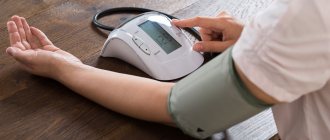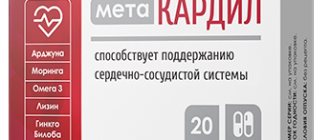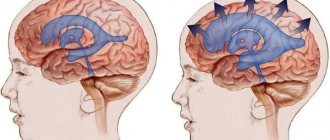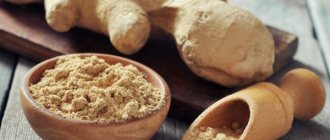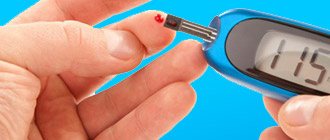Many people use essential oils for high blood pressure (hypertension). However, there is little evidence yet that essential oils can lower blood pressure. Since hypertension can lead to heart attack or stroke, it is important not to rely on essential oils alone as a remedy. Your doctor may recommend lifestyle changes and medications for high blood pressure. Talk to your doctor before adding essential oils to your treatment plan.
What oils can be used for hypertension?
Bergamot
In a small study of 52 participants, researchers tested whether inhaling an oil mixture containing bergamot could lower blood pressure. The blend also included lavender and ylang-ylang. Based on their results, the researchers concluded that essential oils may help reduce high blood pressure.
Citronella
People traditionally use citronella oil as a mosquito repellent, but it can also help heart health. A 2012 study published in the journal Health Research
, reports that inhaling citronella vapor can lower blood pressure, heart rate, and breathing rate.
Clary sage
A 2013 study included 34 participants with urinary incontinence. Scientists found that clary sage oil reduced participants' heart rates during urodynamic examinations. It's important to note that clary sage oil—unlike clary sage oil—contains a compound called thujone, which can increase blood pressure.
Incense
Frankincense essential oil is a popular component of Eastern medicine. In addition to its anti-inflammatory properties, it can also help combat anxiety and similar problems. These effects may reduce high blood pressure.
Lavender
Lavender is one of the most popular essential oils for enhancing relaxation and reducing stress and anxiety. Researchers found that a mixture of oils, including lavender, could reduce high blood pressure in participants who inhaled it.
Neroli oil
Researchers have found that neroli essential oil mixed with lavender, ylang-ylang and marjoram can reduce stress and blood pressure in people with prehypertension and hypertension.
Rose
Rose oil has a calming effect. Applying rose oil to the skin can reduce blood pressure, heart rate, breathing rate, blood oxygen saturation levels and skin temperature.
Marjoram
Researchers observed changes in the blood pressure and heart rate of participants who inhaled sweet marjoram essential oil.
Valerian
Valerian is an excellent relaxant that promotes sleep and promotes calm in people and pets. Scientists note that the essential oil can be used to treat mild mental stress and improve sleep.
Ylang-ylang
Researchers have used ylang-ylang essential oil in combination with other oils to effectively lower blood pressure. A small 2013 study reported that the aroma of ylang-ylang may have a sedative effect that significantly lowers blood pressure.
Medicines for arterial hypertension
Arterial hypertension (synonyms: hypertension; arterial hypertension; increased blood pressure) is a chronic disease characterized by increased blood pressure. It is impossible to completely cure this disease, but blood pressure can and should be kept under control. High blood pressure contributes to the development of coronary heart disease. Keeping your blood pressure under control and treating hypertension early will help reduce your risk of kidney disease. The earlier the prevention and treatment of arterial hypertension is started, the lower the risk of developing complications of hypertension in the future.
The causes of arterial hypertension remain unknown in 90% of cases. However, the main factors that increase the risk of developing arterial hypertension are known: age; hereditary predisposition; gender (most often men suffer from arterial hypertension); smoking and excessive alcohol consumption, obesity, lack of physical activity.
A symptom of arterial hypertension is an increase in blood pressure, which in itself may not be accompanied by any symptoms and is detected by chance when measuring blood pressure. In some cases, headaches, dizziness, and spots flashing before the eyes may occur. In addition to those blood pressure lowering medications prescribed by your doctor, it is recommended to use natural remedies to control blood pressure. It is known that Orange Essential Oil, when taken orally (in tea, with sugar), has an antispasmodic and calming effect, lowers blood pressure, and eliminates psycho-emotional arousal, therefore it is used for hypertension. Lemon essential oil has a similar effect on arterial hypertension. The functioning of the heart and nervous system is normalized by the macroelement magnesium, which is enriched in Orange Syrup. To relieve headaches due to high blood pressure, you need to use Universal Oil 31. containing a composition of natural essential oils from 31 plants! The oil in its pure form is applied to the skin of the temporal and occipital areas of the head, gently massaging. Juniper Cream is effective for reducing blood pressure. with which, when pressure increases, they lubricate the neck and calf muscles. Sound and healthy sleep after an aromatherapy session with Lavender Oil helps normalize blood pressure.
Application diagram
Internal use:
Orange oil : 1 drop. 2 times a day for sugar in tea after meals. Take in courses of 3 weeks with a week break for up to 1 year or more!
Or Lemon oil . The method of application is the same as with Orange oil.
Just Vita Orange . take 1 tbsp. spoon 3 times a day before meals for a month. Repeat the course 2-3 times a year.
External use:
Oil 31 universal . for headaches due to high blood pressure. Apply the pure oil to the skin of the temporal and occipital areas of the head and massage lightly.
Cream with Juniper . massage the cervical-collar area. For 1.5-2 cm of cream, 1 drop of Lavender oil. There are 10-15 procedures per course.
Aromatherapy with Lavender oil . Add oil to the Aroma Lamp at the rate of 2 liters of oil per 5 m² of room area. Conduct 2-3 sessions per day lasting 20-25 minutes. or apply a drop of oil to a scarf or pillow before bed. Aromatherapy sessions are carried out according to indications.
How effective are essential oils for high blood pressure?
Overall, research on essential oils for treating high blood pressure is limited. A person should not use these oils as a substitute for prescribed medication.
In 2006, researchers assigned 52 patients with hypertension to three groups: an essential oil group, a placebo group, and a control group. Those in the essential oil group inhaled a mixture of lavender, ylang-ylang and bergamot once a day for 4 weeks. The researchers measured the blood pressure and pulse of all participants twice a week. The scientists noted significant differences between the groups, suggesting that inhaling essential oils may reduce psychological stress responses, serum cortisol levels, and blood pressure.
In 2012, scientists conducted a similar study. This time, the purpose of the study was to examine the effects of essential oil inhalation on blood pressure and salivary cortisol levels in 83 people with prehypertension or hypertension. Those in the essential oil group inhaled a mixture of lavender, ylang-ylang, marjoram and neroli for 24 hours. Afterwards, participants' daytime blood pressure and salivary cortisol levels decreased significantly compared to the placebo and control groups.
However, in 2014, researchers found that exposure to essential oil vapor for more than 1 hour may be harmful to the cardiovascular system.
Massage mixtures
Aromatherapy massage through the skin has a beneficial effect on the functioning of the circulatory system and the condition of blood vessels. The room should be warm enough - up to +23 degrees. Before the procedure, it is important to take a warm shower so that the skin becomes clean, slightly steamed and opens its pores. After the massage, for maximum effect, it is better not to swim for 10-12 hours. This will help maintain a normal state longer.
Important: essential oils for massage must be diluted in a base oil, such as olive or almond, before applying to the skin.
Example of a massage mixture
For 15 ml almond oil (base)
- 3 drops black pepper;
- 3 drops rosemary.
Aromatic baths
Aromatic baths have a more powerful effect on the body than the first two methods separately. In this case, beneficial esters are not only inhaled, but also absorbed through the skin. In this way, a hypotensive person significantly improves his condition, while relieving stress and relaxing. For treatment, baths are usually carried out every other day, as a preventive measure - 1-2 times a week.
The optimal water temperature for an aroma bath is considered to be up to 38 degrees. At higher levels, beneficial substances evaporate. It is undesirable for the volume of oils added to the bath to exceed 10-15 drops. Dosage for the first session – 3-4 drops. If well tolerated, the proportion of substances is gradually increased. There is no need to combine many scents at the same time. It is better to choose from 2 to 4 components.
Important: Esters that increase pressure and any others do not dissolve in water in their pure form. They need to be added to a small amount of a natural emulsifier (honey, salt, heavy cream or sour cream). The resulting mixture is distributed in the bath.
Are essential oils safe?
Essential oils do not pose much of a risk if people use them as intended. However, precautions should be taken:
Do not ingest essential oils—use them externally only.
Always dilute essential oils in a carrier oil before applying them to your skin. Undiluted oils may cause skin irritation.
People with asthma, migraines, or headaches should avoid inhaling certain essential oils.
Avoid using essential oils close to your eyes. If oil gets into your eye, rinse it thoroughly with water and consult a doctor.
Use reputable brands of essential oils and make sure they haven't expired.
Keep essential oils away from children and animals.
When atomizing or diffusing oil preparations, consider other factors. Some oils may be harmful to pregnant women, children and animals.
If a person ingests an essential oil, side effects may appear within 30 minutes, although they may take up to 4 hours. These unwanted effects may include:
- skin irritation
- eye pain, soreness, or irritation
- persistent cough
- nausea and vomiting
- drowsiness
- shallow breathing
- to whom
Does the quality of oils affect the effect?
Aromatherapy gives the desired positive results only when used correctly using natural plant extracts. Only natural extracts from plants without additional impurities in the composition will be effective for hypertension.
The composition of the oil obtained using steam distillation is considered to be of high quality; only this method guarantees the highest concentration of the natural components of the plant. Products reconstituted from dried raw materials will be useless, especially if additional components are added to their composition. This technology deprives the plant of its healing properties and makes the extract from it exclusively perfume.
You can distinguish a real essential oil by the following characteristics:
- dark glass bottle;
- presence of a Latin name;
- comprehensive information about the method of obtaining the product;
- commercial name in the original language.
It is worth paying attention to the expiration date of essential oils planned for use for hypertension. It is advisable to purchase aromatic medicines for the treatment of high blood pressure in pharmacies or special health stores.
Use of essential oils during pregnancy or children
The use of essential oils by pregnant women or children is highly controversial. There is concern that in pregnant women, the oils used may penetrate the placenta and affect the fetus. In addition, inhaled molecules of these oils can pass to the fetus through the blood. However, some essential oils may be safe to use during pregnancy. Pregnant women should consult their doctor before trying any essential oil.
Children have a greater risk of toxicity from essential oils than adults. Even 2 milliliters can cause serious poisoning in infants.
Bath Recipes and Aromatherapy
A course of treatment using essential extracts from plants includes a combination of direct inhalation of the oil through an aroma lamp and special baths. Oily plant extracts can be used not only as first aid, but also to complement traditional medical treatment with the healing properties of plants.
Daily baths using the following combinations of oils will be beneficial:
- 2 drops each of clary sage, marjoram and incense;
- 2 drops each of marjoram, ylang-ylang and lavender;
- 2 drops each of noble navel, rose oil and geranium;
- 3 drops of lavender, 1 drop of geranium, 2 drops of marjoram and tangerine.
The average time for taking a bath, in which a mixture of aromatic oils is added to the water, is about 15-20 minutes. The water must be hot enough to achieve the aromatherapy effect.
Twice a week you can take a bath with 3 drops of marjoram and ylang-ylang. It is advisable to carry out this procedure before bedtime.
You can also use essential oils to lower blood pressure through inhalation using an aroma lamp. Some prescriptions have side effects; it is advisable to first agree on such an addition to traditional therapy with your doctor.
The following recipe is effective for inhalation:
- peppermint – 1 drop;
- rosemary – 2 drops;
- cypress – 1 drop;
- hyssop – 2 drops.
Aromatherapy with this composition is used no more than once a day for 10 minutes. If you experience severe dizziness, you must stop the procedure immediately to avoid the opposite effect.
Another option for a combination of aromatic oils that can be used without restrictions:
- ylang-ylang - 2 drops;
- nutmeg - 1 drop;
- lavender - 4 drops;
- sage - 1 drop.
If you don’t have an aroma lamp, you can use the simplest method - apply a mixture of pressure-lowering oils onto a simple paper napkin and inhale the aroma for some time.



